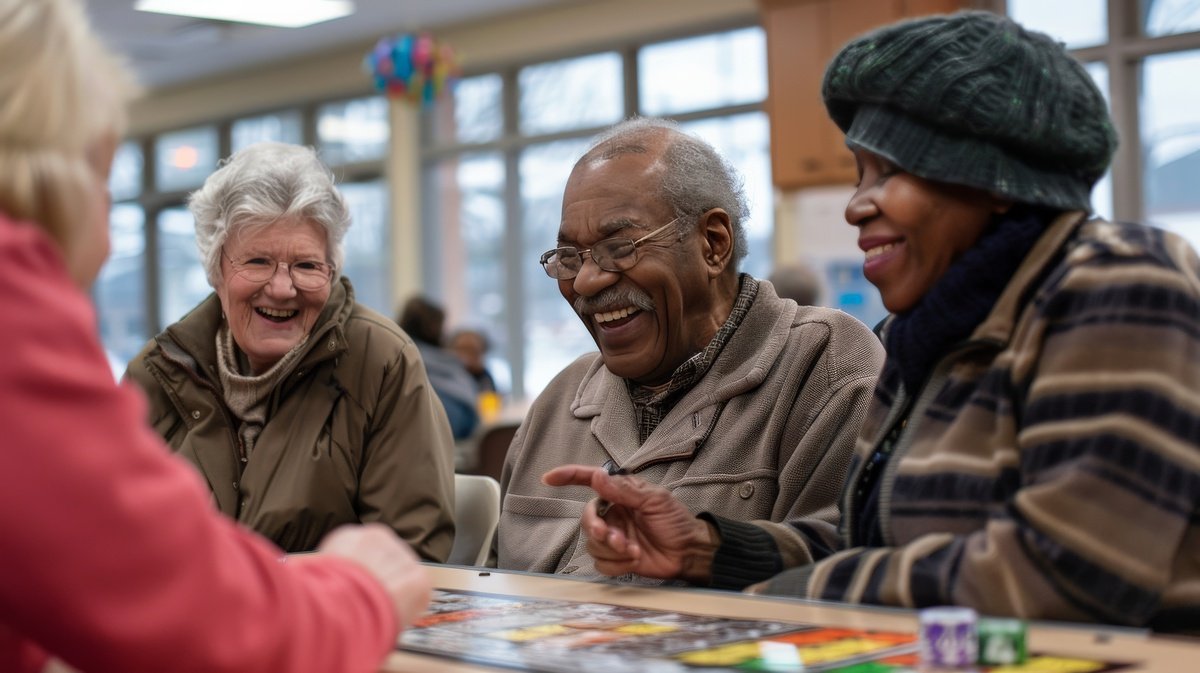Actress, Bette Davis once quipped, “Old age ain’t no place for sissies!” Decades later, her remark continues to ring true for today’s seniors. Older adults struggle with physical decline, changes in memory, and adjustment to retirement. But, what may come as a surprise in old age is the onset of mental health issues, such as depression. In fact, older adults are at an increased risk of depression due to chronic health conditions and life changes. Fifteen to twenty percent of older adults in the United States have experienced depressive symptoms. And, sadly, seniors have the highest suicide rate in the country.
Old age brings on many losses. Seniors cope with loss of their job and purpose in life. Friends and spouses pass away. Individuals struggle with loss of mobility due to illness. Failing eyesight and hearing lead to isolation and a loss of control over one’s life. It is no wonder that individuals experience loneliness and feelings of despair. However, depression is not a normal part of aging. Depression can be treated successfully, so that older adults are able to enjoy their golden years to the fullest.
It is important to note that older adults who are depressed may not express overwhelming sadness. Instead, the individual may complain of fatigue, lack of motivation and an increase in aches and pains. As a result, depression is often unrecognized and under-diagnosed in older adults. Individuals may be reluctant to talk about their feelings or may not be aware that their physical aches and pains are symptoms of depression. The medical community may view the symptoms as part of another chronic condition. If left untreated, long-term depression can dramatically impact an individual’s overall health. Chronic depression can lead to slower healing from physical illness, a poor quality of life and higher mortality. Even mild depression can lower the body’s immunity and compromise the ability to fight infections.
Depression is a common issue with older adults. In fact, Individuals who have never experienced depressive symptoms may do so later in life due to chronic illness, medications, or loss. It is important to talk with a professional if the older adult experiences:
-
Sadness that has lasted for more than two weeks
-
Feelings of hopelessness, guilt, or worthlessness
-
An increase in irritability or restlessness
-
Loss of interest in activities or hobbies that were once pleasurable
-
Excessive anxiety over money, family or health
-
Sleep disturbances: Insomnia or excessive sleeping
-
Difficulty with memory or feeling confused in familiar places
-
Increased use of alcohol or other drugs
-
Overeating or significant loss of appetite
-
Thoughts of suicide
-
Persistent aches or pains that do not improve with treatment
Depression in older adults can be caused by medical conditions such as Parkinson’s disease, stroke, cancer, diabetes, thyroid disorders, vitamin B12 deficiency, dementia, lupus, or multiple sclerosis. Depression can also be a side effect of medication. If the individual feels depressed after starting a new drug, the physician should be notified. Changes can be made in medication or the dose can be lowered to reduce the depressive symptoms
In older adults, there is a significant challenge in distinguishing between dementia and depression, as the symptoms are quite similar. Individuals with dementia are sometimes initially misdiagnosed with depression. The subtle differences are outlined below:
| Symptoms of Depression | Symptoms of Dementia |
| Mental decline moves quickly | Very gradual loss of cognition |
| Is aware of memory issues | Lacks insight into memory loss |
| Problems with concentration | Problems with memory |
| Knows date / time / place | May not be oriented to date / time / place |
Early diagnosis and treatment of mental health issues, such as depression, can protect against debilitating physical and emotional consequences. Sometimes, just solving basic challenges, such as transportation or meal preparation, can lower stress and dramatically reduce the individual’s risk of depression.
Effective ways to reduce depression include:
-
Even minimal movement helps counteract depressive symptoms
-
Avoid isolation. Stay engaged with family and friends
-
Volunteer your time. Helping others is a good way to feel better and expand your social network
-
Take care of a pet
-
Learn a new skill
-
Eat well. Limit sugar and refined food.
-
Get enough sleep
-
Limit alcohol
-
Join a support group, especially if you are a caregiver
If depression is chronic and is impacting the older individual’s life, a medical doctor or professional therapist should be consulted. Both therapy and anti-depressant medication can be helpful in moving the individual toward a happier, more fulfilling life.
Share This Article



